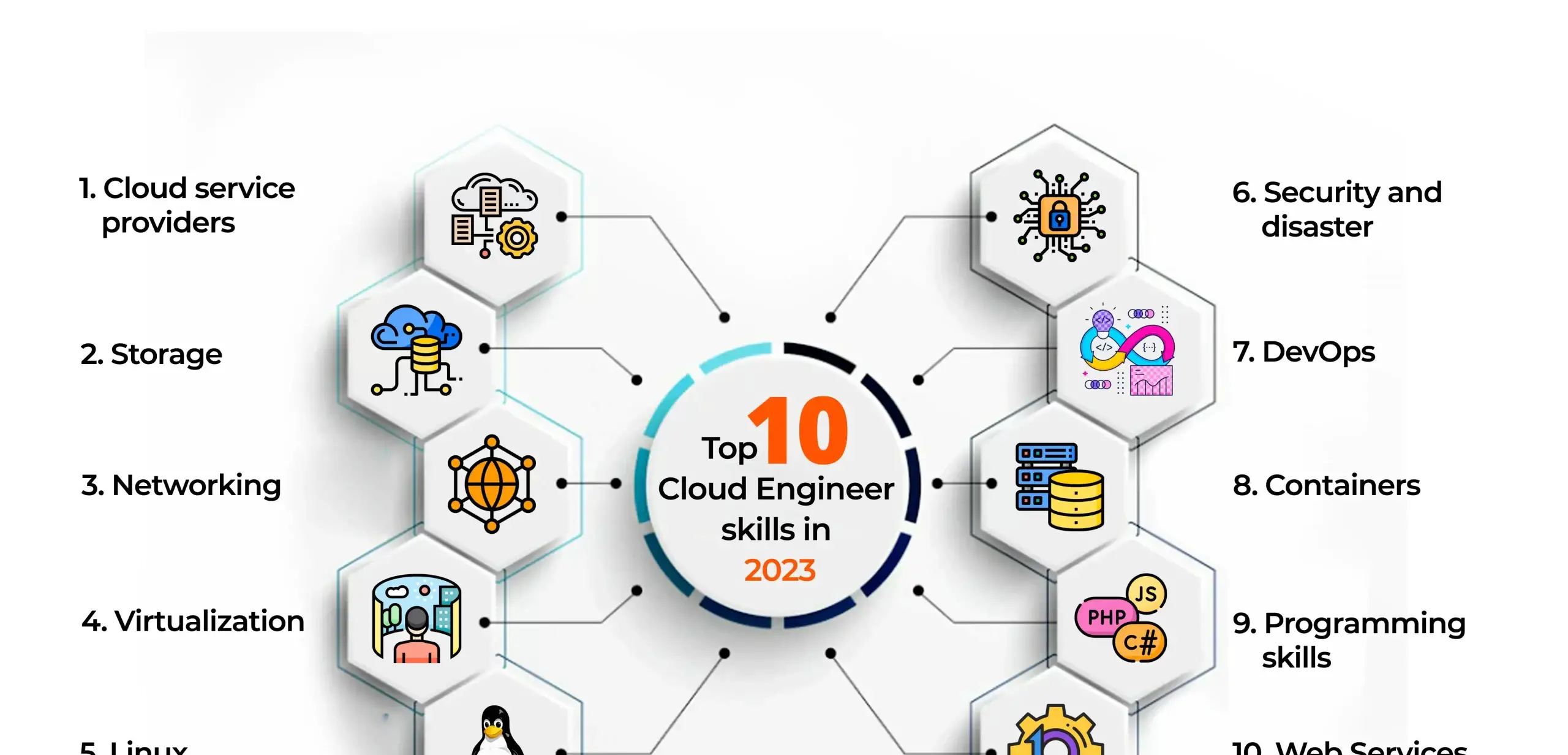Cloud computing has become the backbone of modern digital infrastructure, with Amazon Web Services (AWS) leading the way in providing cloud computing solutions to businesses of all sizes. As cloud technology continues to evolve, the demand for skilled AWS professionals has increased significantly. In this article, we will explore the top 10 essential AWS skills for cloud engineers that will make you stand out in the market.
Table of Contents
- Introduction
- Cloud Computing and AWS
- Essential AWS Skills for Cloud Engineers
- Understanding AWS Architecture
- AWS Networking
- AWS Security
- AWS Compute
- AWS Storage
- AWS Database
- AWS Management Tools
- AWS CloudFormation
- AWS Lambda
- AWS Monitoring and Troubleshooting
- How to Acquire AWS Skills?
- Conclusion
- FAQs
Introduction
With the increasing popularity of cloud computing, it’s no surprise that AWS is the leading cloud provider with a market share of over 30%. The role of a cloud engineer has become critical in ensuring businesses have a smooth and efficient cloud computing infrastructure. However, to become a successful AWS cloud engineer, you need to have a set of skills that go beyond just basic knowledge of AWS.
Cloud Computing and AWS
Cloud computing is the delivery of computing services, including servers, storage, databases, networking, software, analytics, and intelligence, over the Internet. AWS provides a broad set of cloud-based computing services that enable businesses to move faster, lower their IT costs, and scale their applications. AWS offers over 200 fully-featured services from data centers around the globe.
Essential AWS Skills for Cloud Engineers
To become a successful AWS cloud engineer, you need to have a good understanding of the following essential skills:
1. Understanding AWS Architecture
AWS has a unique infrastructure that includes regions, availability zones, and edge locations. Understanding these components is crucial for designing and deploying highly available and fault-tolerant systems. Familiarity with AWS global infrastructure and services is critical for a cloud engineer.
2. AWS Networking
AWS offers several networking services, such as Virtual Private Cloud (VPC), Direct Connect, Route 53, and Elastic Load Balancing (ELB). A cloud engineer must have a good understanding of these services to create secure, scalable, and highly available networks.
3. AWS Security
AWS provides a broad range of security features to protect customer data, applications, and infrastructure. A cloud engineer must have a deep understanding of AWS security services, such as Identity and Access Management (IAM), Key Management Service (KMS), and AWS Certificate Manager (ACM).
4. AWS Compute
AWS provides several compute services, including Elastic Compute Cloud (EC2), Elastic Container Service (ECS), and Elastic Kubernetes Service (EKS). A cloud engineer should have a good understanding of these services to deploy and manage applications in the cloud.
5. AWS Storage
AWS offers several storage services, including Simple Storage Service (S3), Elastic Block Store (EBS), and Glacier. A cloud engineer must have a good understanding of these services to select the appropriate storage solution for their applications.
6. AWS Database
AWS provides several database services, including Amazon Relational Database Service (RDS), Amazon Aurora, and Amazon DynamoDB. A cloud engineer should have a good understanding of these services to deploy and manage databases in the cloud.
7. AWS Management Tools
AWS offers several management tools, including AWS CloudTrail, AWS CloudWatch, and AWS Config. A cloud engineer should have a good understanding of these.
8. AWS CloudFormation
AWS CloudFormation is a service that allows you to model and provision AWS resources in an automated and repeatable manner. A cloud engineer must have a good understanding of CloudFormation to create and manage infrastructure as code.
9. AWS Lambda
AWS Lambda is a serverless compute service that allows you to run code without provisioning or managing servers. A cloud engineer should have a good understanding of Lambda to build scalable and cost-efficient applications.
10. AWS Monitoring and Troubleshooting
AWS provides several monitoring and troubleshooting services, including AWS CloudWatch, AWS X-Ray, and AWS Trusted Advisor. A cloud engineer must have a good understanding of these services to monitor and troubleshoot their applications in the cloud.
How to Acquire AWS Skills?
To acquire AWS skills, you can start with the AWS Certified Cloud Practitioner certification. This certification is an entry-level certification that provides a broad overview of AWS services and concepts. Once you have completed the certification, you can move on to other AWS certifications, such as AWS Certified Solutions Architect, AWS Certified Developer, or AWS Certified DevOps Engineer.
In addition to certifications, you can also gain AWS skills by working on real-world projects and experimenting with AWS services. AWS also provides several resources, including documentation, training, and support, to help you learn and master AWS services.
Conclusion
Becoming an AWS cloud engineer requires a broad set of skills that go beyond just basic knowledge of AWS services. Understanding AWS architecture, networking, security, compute, storage, database, management tools, CloudFormation, Lambda, and monitoring and troubleshooting services is critical for a cloud engineer. By acquiring these skills, you can become a valuable asset to any organization that uses AWS.
FAQs
- What is AWS, and why is it important?
- What are the essential AWS skills for cloud engineers?
- How can I acquire AWS skills?
- What certifications are available for AWS?
- What resources are available to learn AWS?
